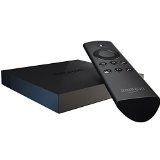
Popular Media definition
Hot Off the Press:
Using Popular Media in Instruction
By Sharon A. Hollander
Georgian Court College
I read about it in Glamour. Can I use information from a web site? There was something on that in the newspaper last week. Who hasn't heard comments and questions like these in class? The popular media, by definition, is everywhere, and Psychology classes are magnets for material from newspapers, magazines, the Internet, and more.
After a semester or two of smiling politely at the mention of USA Today or Yahoo.com, I realized that the popular media could be a valuable resource for my students. The information is often current, interesting, and accessible. Instead of trying to redirect class discussion, I decided to integrate these information sources into my courses and wanted to do so in a thoughtful manner. The results were so positive that I now encourage other instructors to use the popular media in their teaching.
WHY SHOULD I?
There are many reasons why a daily newspaper or visit to cyberspace should play a role in your course.
Reading. There is a nearly universal faculty complaint that students simply don't read enough. On-campus reading of quality materials is at an all time Iow. Teaching with the media encourages reading in general and more specifically, reading in Psychology. Material from carefully chosen newspapers, magazines, and web sites can be used to complement, enrich, and promote conventional academic reading.
Furthermore, these sources are read long after students complete their formal education. Be honest - how many of us reach for An Outline of Psycho-Analysis with our morning coffee? Pedagogical use of the media allows faculty to help shape students' life-long reading habits, both on- and off-line.
Critical Consumption of Information.Including the media in Psychology lessons can help students become critical consumers of information. With the advent of the Internet and desktop publishing, everything looks credible and professional. Think about the different levels of quality among magazines alone. How does Psychology Today compare to US News and World Report or Good Housekeeping? With faculty guidance, students can learn to differentiate between peer-reviewed and non-peer-reviewed material, between professional and general interest articles, and between meaningful graphs and cool graphics.
Popular Media as Sources for Academic Work. Information gathering is easier than ever and once identified, quality articles in the popular media can be valuable sources for research papers and may lead the way to more scholarly inquiry.

|
Amazon Fire TV Amazon SMP (Amazon)
|
|
Justola J-cup Ultra Portable Wireless Bluetooth Speaker with 1 Year Warranty, Enhanced Bass Resonator, Powerful Sound, High-definition Sound for Iphone, Ipad, Samsung, Nexus,blackberry Htc, Nokia and Other Smartphones and Mp3 Player - White Network Media Player (JustOla)
|






